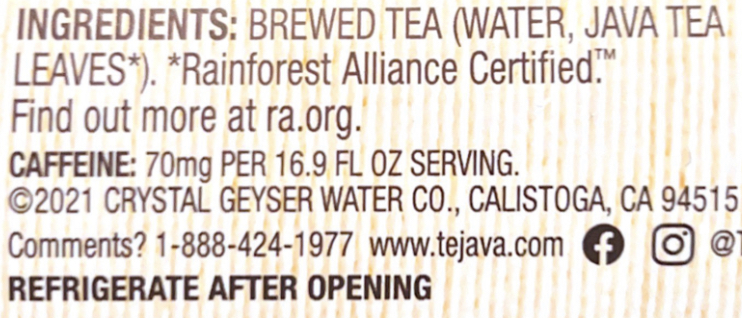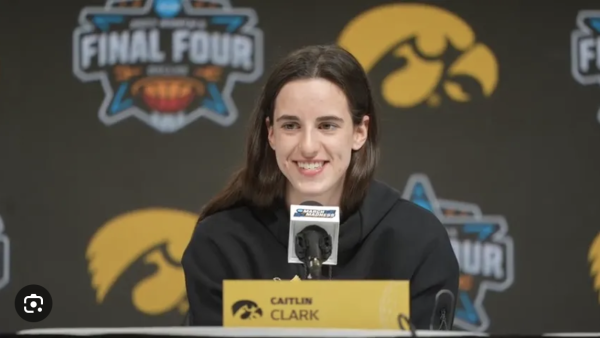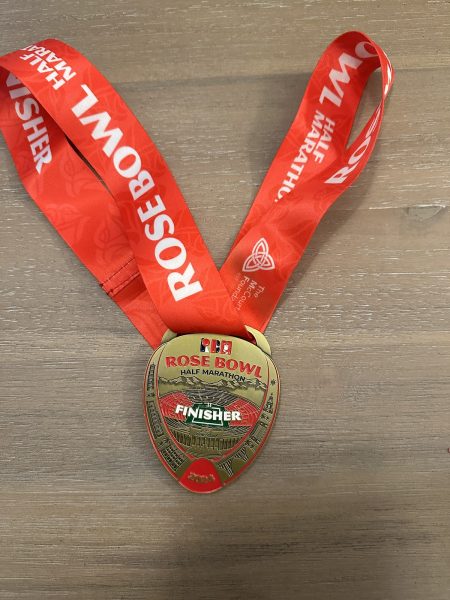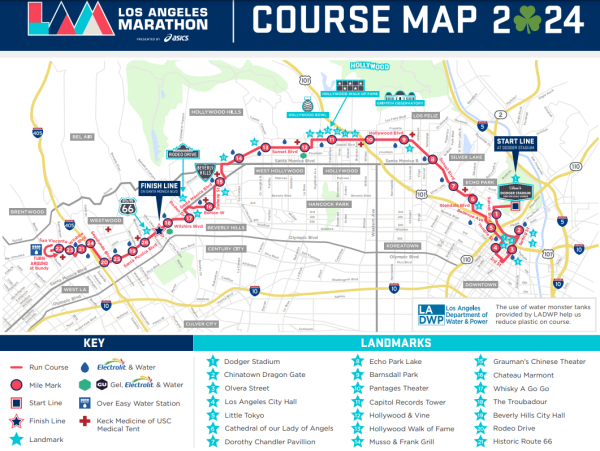When Should I Start Drinking Caffeine?
In this bottle of tea, there are 70 milligrams of caffeine.
March 6, 2023
As time goes on, the increase in the consumption of caffeinated drinks keeps going up (National Coffee Blog). As the realm of caffeinated drinks continues to grow, the need to learn more about the topic increases.
I think caffeine makes me faster for basketball and gets me locked in.
— Claire Leininger (9)
Caffeine is a natural stimulant that stimulates the brain and central nervous system. When consumed, it can quickly boost our concentration, alertness, memory, and reaction time. This temporary energy spike is the most popular reason why people drink caffeinated drinks. As Claire Leininger (9) comments, “I think caffeine makes me faster for basketball and gets me locked in.”
Research shows ideal amounts of caffeine people should drink. Children under the age of 12 should avoid caffeine. There is no proven dose of caffeine that is safe for those 12 and under (AACAP). For those aged 12-18, it is suggested to keep the caffeine to no more than 100 milligrams per day which is around two 12-ounce cans of cola. Adults that are healthy can handle up to 400 milligrams of caffeine per day. Though different ages mean different amounts of caffeine tolerance, there is a recommended age range when drinking certain caffeinated beverages.
Soda
Caffeinated soda usually doesn’t have as much caffeine as drinks like coffee and energy drinks, but there is a time when it should be avoided. During toddlerhood, which is around the ages of 1-3, soda should be avoided until well after this period. As soda is high in sugar and has no nutritional value, giving it to a young child could risk some health issues like obesity and tooth decay.
Coffee
When it comes to the appropriate age to drink coffee, there is no definitive answer. Even though you could consume coffee starting at any age, experts believe starting around the age of 18 is best. At this age, your body is fully developed so it is safer. As coffee has a high acidity, drinking it consistently at a young age can damage your teeth. If you are under the age of 12, consuming coffee moderately and in small amounts is not too harmful (Test Food Kitchen).
Energy Drinks
Next to vitamins, energy drinks are the most popular dietary supplement consumed by teenagers and young adults in America (NCCIH). Even though the increasing demand for energy drinks keeps going up, pediatricians say that energy drinks should never be consumed by children and adolescents (American Academy of Pediatrics). With the high levels of caffeine, sugar, and other additives, energy drinks can be harmful to their health. As of now, energy drinks don’t have a requirement to specifically say the amount of caffeine on the label of the product, creating caffeine safety concerns.
Caffeine consumption is all about moderation and controlling your caffeine intake. Knowing how much you have been drinking and being aware of how it affects you helps ensure you are not having excessive caffeine intake, which can cause health problems. By drinking caffeinated drinks moderately, you are able to enjoy the effects of caffeine while staying healthy.






















Chase Kim • Mar 9, 2023 at 7:33 AM
I think this a great look into the effects of caffeine and different sources of caffeine! It’s fascinating that caffeine has different effects on people of different ages, though I guess it’s a matter of differently-sized people? Anyhow, this is a great article. Keep up the good work!